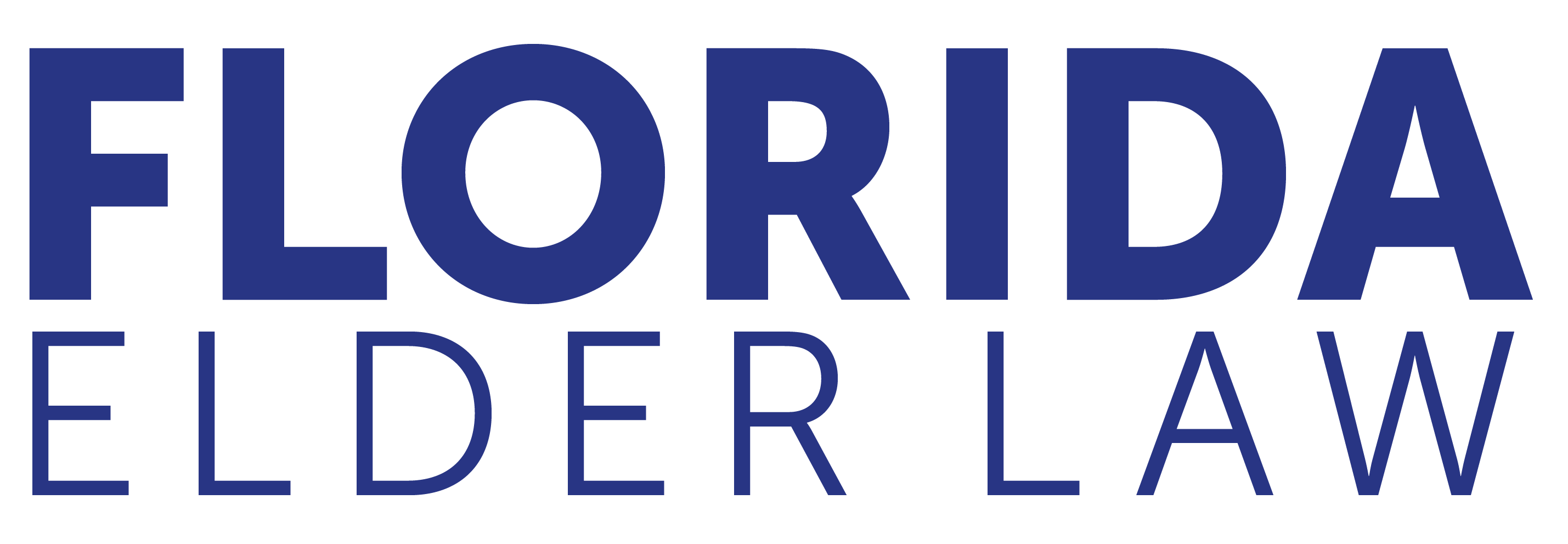The loss of a loved one can be overwhelming. Whether you have recently suffered a loss or just need more information, this brief guide will help you understand, plan for, and effectively deal with some of the practical details which may arise after the loss. You can take these steps whether or not probate is necessary. If you have questions about this information or about whether probate is necessary, please seek legal advice.
-
If there is a Will, Florida law requires that you deposit the original with the Clerk of the Court for the county in which the decedent (the person who died) resided within 10 days after their death. Make and keep a copy. There is no charge, and simply depositing the will does not mean you have to file for probate.
-
If the decedent was receiving Social Security benefits, notify Social Security that the beneficiary has died. Often, the funeral director will make this notification; confirm whether this has been done in your case. It is important that Social Security knows to stop sending checks; you must return the benefit received for the month of death or any later months. Also, you may be eligible for a lump-sum death benefit and benefits as a survivor. See, “How Social Security Can Help When A Loved One Dies.”
-
If the deceased was a veteran, funeral directors will often contact the V.A. on your behalf about benefits and options for the funeral and burial. It is helpful to have the decedent’s discharge papers available to document eligibility. As a survivor, you may also be entitled to benefits. See the V.A.’s Office of Survivors Assistance website.
-
If the decedent had a credit card account in their name alone, notify the financial institution; no charges should be made after the cardholder’s death. If the credit card account was in the decedent’s name alone, you are not personally liable for any money owed, but the decedent’s estate may be.
-
If the decedent had a life insurance policy, contact the insurance company for further direction on filing a claim. If the policy is payable to the estate, a probate will likely be required. If a beneficiary is named on the policy, the proceeds will be paid directly to the beneficiary.
-
If the decedent was a homeowner, their death may impact the title to the property as well as the property tax exemptions. Call the Property Appraiser in the county in which the property is located for more information.
-
If the decedent had a mortgage in their name alone and the beneficiaries would like to keep the property, continue making payments to avoid foreclosure. Eventually, the beneficiaries of the estate will need to payoff, assume, or refinance the loan. If you do not wish to keep the property you are not personally liable to repay the mortgage.
-
IMPORTANT!! IF YOU ARE THE SURVIVING SPOUSE AND YOUR HOMESTEAD IS IN THE DECEDENT’S NAME ALONE, you may have an important decision to make within six months of the date of death. Call the Florida Senior Legal Helpline or contact an attorney of your choice as soon as possible to understand your options.
-
If the decedent’s death was COVID-related and you need help with funeral expenses, call FEMA’s Funeral Assistance Line, 1 (844) 684-6333, for more information.
FREQUENTLY ASKED QUESTIONS
How do I get a Death Certificate? What’s the difference between a “short form” and a “long form”?
If a funeral home is involved, they will generally arrange to get death certificates for you. If you need to get Death Certificates yourself, visit the Florida Department of Health’s website or call (904) 359-6900. The “short form” does not include the cause of death; the long form does. Contact the Bureau of Vital Statistics for more information.
Can I access the decedent’s bank account? Why won’t the bank tell me the balance?
If the account is in the decedent’s name alone, you can only access the account if you are the “payable on death” beneficiary. If there is no such designation (also known as “P.O.D.”), a court order is generally required to access the bank account or to get information about the account specifics. Sometimes a court order is available via a short process called “Disposition Without Administration.” To see whether you are eligible, ask your attorney or call the Florida Senior Legal Helpline for more information.
Can I cash checks made payable to the decedent?
Not without a court order.
My loved one was not wealthy. Why am I getting mail addressed to his/her “estate”?
When a person dies, their legal status changes from “individual” to “estate of individual.” The legal label “estate” has nothing to do with the decedent’s wealth. Nor does it mean you must file for probate.
I have a problem with the funeral home. What can I do?
The Florida Department of Financial Services has a special division which licenses funeral services and which handles related consumer issues. See the Division of Funeral, Cemetery, and Consumer Services’ website, or call 1 (800) 323-2627.
What about probate?
Whether or not probate is necessary is a legal question best answered by an attorney. For general advice about probate, you can call the Florida Senior Legal Helpline at 1 (888) 895-7873.
Prepared by staff of the Florida Senior Legal Helpline.
